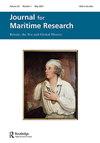‘His brain was not working properly’: the surrender of HMS Seal and the court-martial of Lieutenant-Commander Rupert Lonsdale, RN
Q3 Arts and Humanities
引用次数: 0
Abstract
ABSTRACT The post-war court-martial of Lieutenant-Commander Rupert Lonsdale, skipper of a British submarine captured at sea by the German Navy eight months into the Second World War, resulted in a full acquittal. It has been widely assumed that this trial was a pro forma exercise mounted simply in order to absolve publicly a gallant officer who had found himself in an impossible situation, the final verdict being a foregone conclusion. This was not so. Under the terms of the Naval Discipline Act then in force it was a serious offence to surrender a vessel of the Royal Navy to the enemy if it could still be defended, and the former captain had already admitted to having surrendered HMS Seal without preparing to scuttle her. Given the undisputed central facts of the case, only the introduction at trial by the defence of an unprecedented argument – that a slow build-up of carbon dioxide inside the boat over many hours while it was stuck underwater had rendered its captain mentally incompetent at a critical time – allowed the Court to side with the accused. The outcome influenced later naval disciplinary proceedings and was eventually acknowledged in changes to armed forces law in the United Kingdom.“他的大脑没有正常工作”:英国皇家海军“海豹”号的投降和海军中将鲁珀特·朗斯代尔(Rupert Lonsdale)的军事法庭
鲁珀特·朗斯代尔(Rupert Lonsdale)是一艘英国潜艇的船长,二战后8个月,他在海上被德国海军俘获。人们普遍认为,这次审判是一种形式上的做法,只是为了公开赦免一名勇敢的军官,他发现自己处于一种不可能的境地,最后的判决是预料之中的。但事实并非如此。根据当时生效的《海军纪律法案》的规定,将皇家海军的船只交给敌人是一种严重的犯罪行为,如果该船只仍有防御能力的话,这位前船长已经承认,他在没有准备击沉海豹号的情况下就交出了海豹号。鉴于本案的核心事实是无可争议的,只有辩方在审判中提出了一个前所未有的论点——当船被困在水下的几个小时里,船内二氧化碳的缓慢积聚使船长在关键时刻精神失常——才使法庭站在被告一边。这一结果影响了后来的海军纪律程序,并最终在联合王国对武装部队法的修改中得到承认。
本文章由计算机程序翻译,如有差异,请以英文原文为准。
求助全文
约1分钟内获得全文
求助全文
来源期刊

Journal for Maritime Research
Arts and Humanities-History
自引率
0.00%
发文量
0
期刊介绍:
The Journal for Maritime Research ( JMR ), established by the National Maritime Museum in 1999, focuses on historical enquiry at the intersections of maritime, British and global history. It champions a wide spectrum of innovative research on the maritime past. While the Journal has a particular focus on the British experience, it positions this within broad oceanic and international contexts, encouraging comparative perspectives and interdisciplinary approaches. The journal publishes research essays and reviews around 15-20 new books each year across a broad spectrum of maritime history. All research articles published in this journal undergo rigorous peer review, involving initial editor screening and independent assessment, normally by two anonymous referees.
 求助内容:
求助内容: 应助结果提醒方式:
应助结果提醒方式:


